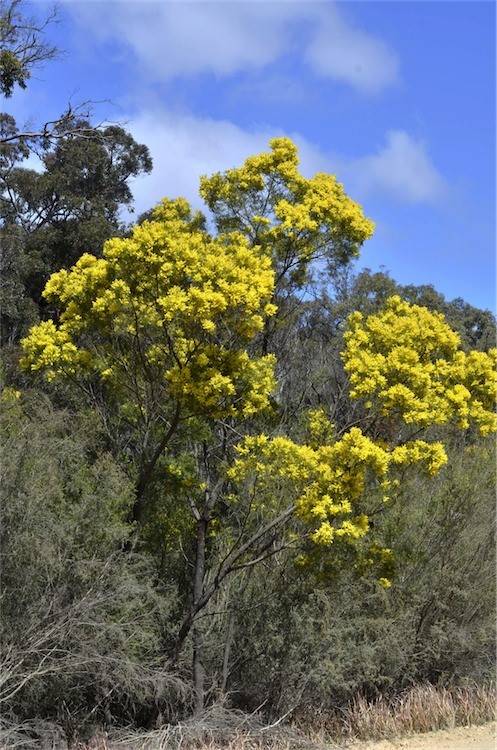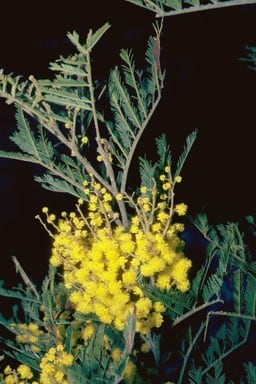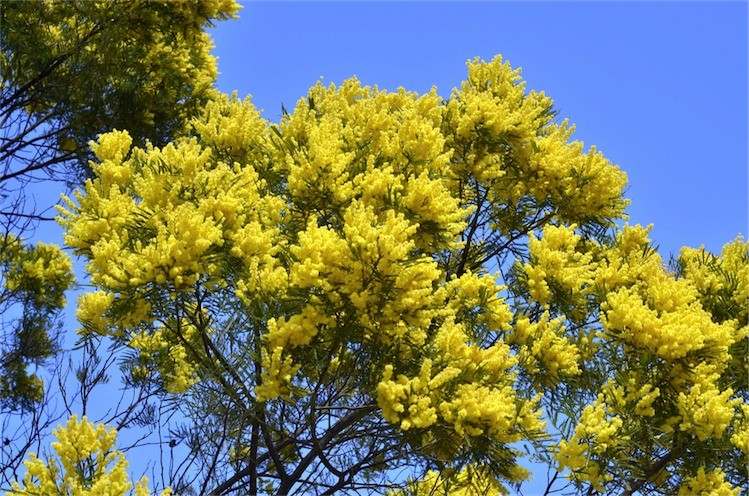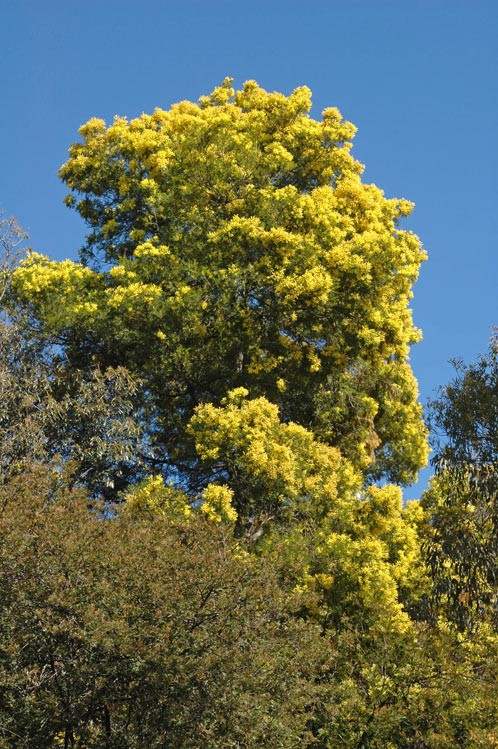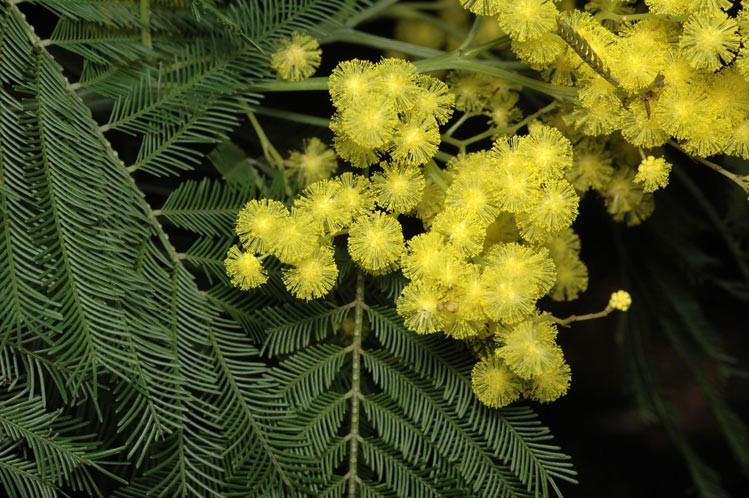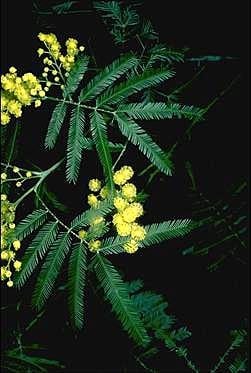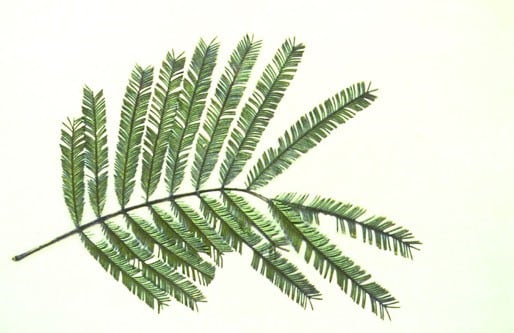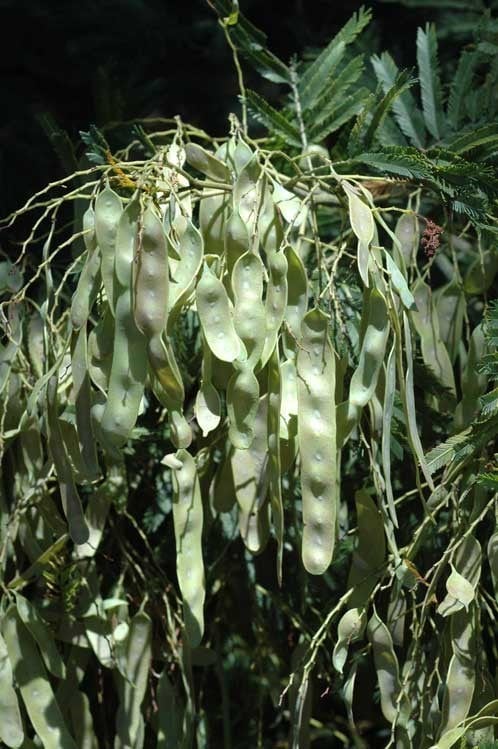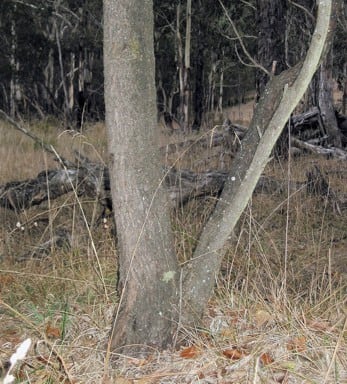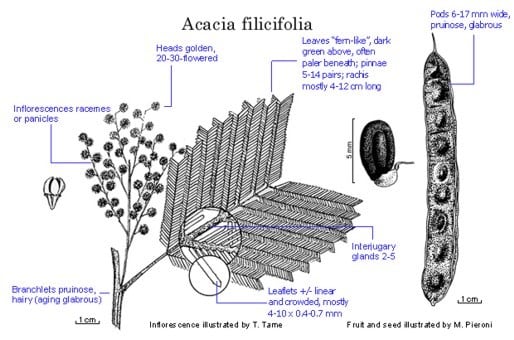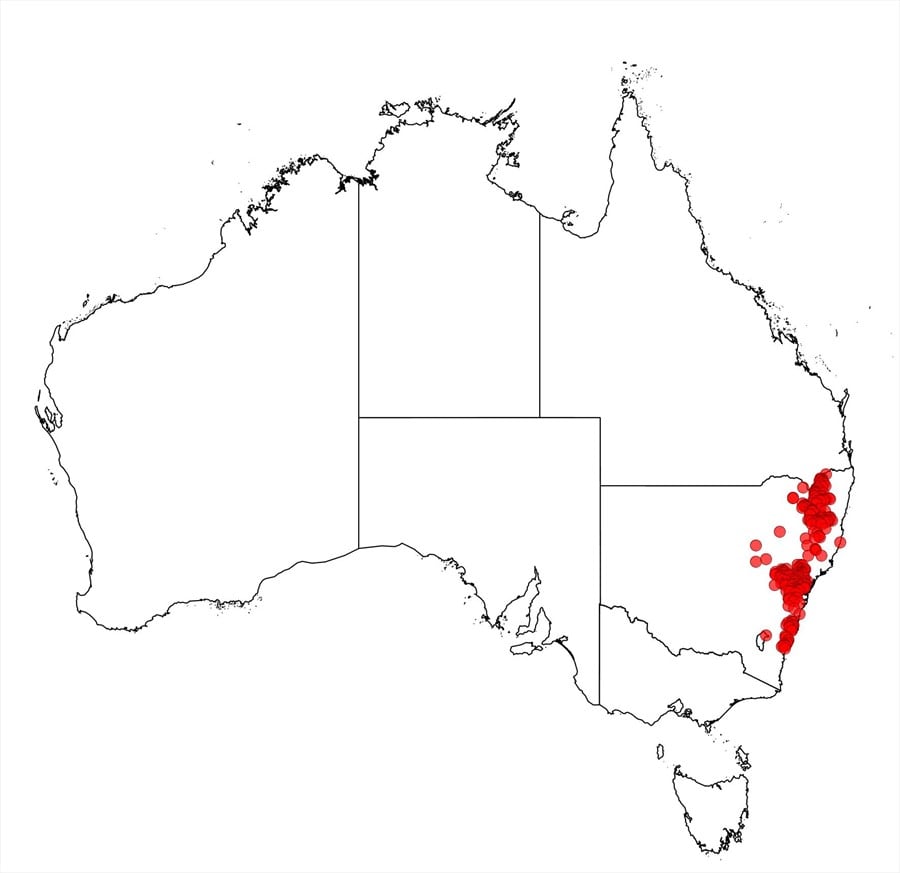Acacia filicifolia Cheel & M.B.Welch
WATTLE
Acacias of Australia
Common Name
Fern-leaved Wattle
Family
Fabaceae
Distribution
Common, occurring from Stanthorpe, south-eastern Qld, to North and South Coast of N.S.W. from Legume S to Bateman’s Bay, as well as Northern and Central Tablelands, and North and Central Western Slopes of N.S.W.
Description
Shrub or erect tree 3–14 m high. Bark smooth, green, grey to dark brown, later fissured near base. Branchlets straight or zig-zagged, terete except towards apex, pruinose, with grey slightly matted hairs, later ±glabrous; ridges 0.2 mm high. Young foliage-tips whitish to golden, pubescent. Leaves fern-like, herbaceous to subcoriaceous, dark green, paler beneath; petiole above pulvinus mostly 0.7–2.3 cm long, flattened vertically, usually with 1 orbicular, pubescent to glabrous gland at base of or near lowest pair of pinnae and 1–4 sometimes contiguous additional glands; rachis (1.5–) 4–12 cm long, with 2–5 interjugary glands between pairs of pinnae; jugary glands sometimes absent; pinnae (3–) 5–14 pairs, 3–6.5 (–8) cm long; pinnules 23–68 (–93) pairs, closely spaced to crowded, narrowly oblong to linear, (3–) 4–10 (–12) mm long, 0.4–0.7 (–0.8) mm wide, with fine ±appressed white hairs (often only on margins) or glabrous, obtuse to broadly rounded. Inflorescences in axillary racemes, or axillary or terminal false-panicles; peduncles 2–4 (–6) mm long, finely hairy. Heads globular, (15–) 20–30-flowered, dark yellow; flower-buds compact. Pods almost straight-sided or indented between a few seeds, 3.5–13 cm long, 6–17 mm wide, subcoriaceous, blue to blue-black, pruinose, glabrous.
Phenology
Flowers late July–Oct.; fruits chiefly (Oct.–) Nov.–Jan.
Habitat
Grows in open forest, eucalypt scrub-woodland and savannah, on valley slopes or alluvial flats, often near streams, often on granite but on various strata and in sandy soils.
Specimens
Qld: 6.6 miles [10.5 km] E of Ballandean, L.Pedley 1599 (BRI, MEL). N.S.W.: 32 miles [51.5 km] NE of Glen Innes, R.Coveny 1926 (BRI, CANB, K, L, NSW, PERTH, US); 52.8 km E of Inverell, R.Coveny 12359 & J.Dalby (AD, B, BM, HO, MO, NY, PERTH, TL, US, Z); 1 mile [1.6 km] N of Gibber Swamp, Colo–Putty road, M.D.Tindale & B.G.Briggs (NSW80696).
Notes
Closely related to A. storyi. Often grows with A. parvipinnula in N.S.W. but they do not hybridise.
Information on the biological and ecological features, and the utilisation potential, of this species is given in B.R.Maslin and M.W.McDonald, AcaciaSearch: Evaluation of Acacia as a woody crop option for southern Australia, RIRDC Publication No. 03/017, 88–91 (2004).
Authorship of A. filicifolia is attributed to Cheel & M.B.Welch ex M.B.Welch, Coombs & McGlynn, J. & Proc. Roy. Soc. New South Wales 65: 225 (1932) by A.D.Chapman (in Australian Plant Name Index A–C, 1991), however this is incorrect under Article 34.1 (b) of the ICBN (St Louis Code) 2000 since the name is used in anticipation of its future acceptance.
FOA Reference
Data derived from Flora of Australia Volumes 11A (2001), 11B (2001) and 12 (1998), products of ABRS, ©Commonwealth of Australia
Author
M.D.Tindale, P.G.Kodela
Minor edits by B.R.Maslin & J.Reid
This identification key and fact sheets are available as a mobile application:
URL: https://apps.lucidcentral.org/wattle/
© Copyright 2018. All rights reserved.
